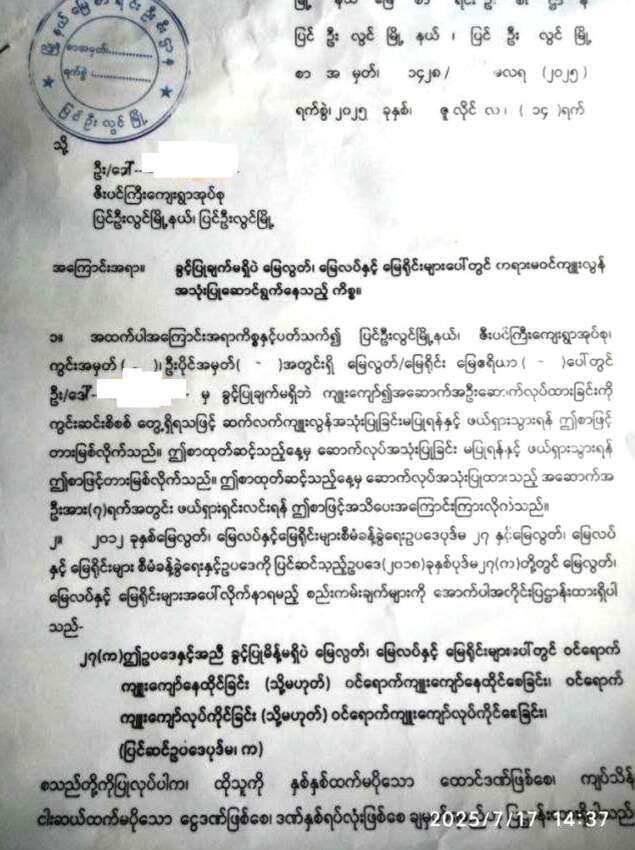
The military council has ordered the demolition of over 300 homes and monasteries in Zeepin Gyi village, Pyin Oo Lwin Township, Mandalay Region, under direct orders from military council leader Min Aung Hlaing. The military has threatened legal action including imprisonment if the structures are not demolished by July 22.
According to an order issued by the military council’s Township Land Records Department on July 14, the homes in Zeepin Gyi village group were allegedly built without permission on vacant land. The order states that all buildings and structures on this supposedly vacant land must be removed within seven days. Local residents report that the military council leader ordered the demolition after viewing the village from a helicopter during his visit to the Central Civil Service University, claiming the homes posed security concerns. Bulldozers have already begun demolition work, with homeowners being forced to destroy their own houses.
Zeepin Gyi village has existed for many years, established by pioneer farmers and civilians who cleared dense forest to create their community. The military is now claiming this land as state-owned vacant land and demanding evacuation. The structures marked for demolition include over 300 homes and two monasteries, affecting both civilian residences and government employees’ housing. The military council has threatened that those who fail to comply will face up to two years imprisonment and fines of up to 5 million kyats under the Vacant, Fallow and Virgin Lands Management Law, or both penalties combined.
This forced eviction by the military council has caused great distress among local residents who are now facing the loss of their homes and community. The village was developed through the hard work of local people who transformed wilderness into a habitable area over many years. The military’s sudden claim to the land and forced eviction orders represent another instance of the regime’s oppressive actions against civilians. The threat of criminal penalties and fines adds additional pressure on residents who have legally occupied and developed this land for generations.
The demolition order affects not just residential homes but also religious buildings that serve as important community centers. The military council’s actions demonstrate a pattern of disregard for civilian property rights and community welfare, using threats of legal action and imprisonment to enforce their will. This situation highlights the ongoing challenges faced by Myanmar’s civilians under military rule, where long-established communities can be suddenly uprooted through arbitrary decisions and threats of force.



